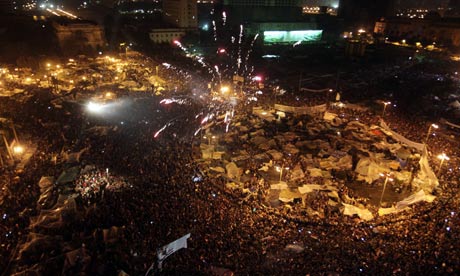Looking at the events that have unfolded in Egypt and Tunisia over the past one month, a large part of the historic success that has come of these uprisings boils down to the power of social media and technology - Facebook, Twitter, Wikileaks, You Tube and mobile phones - and in turn its use - that give people leverage to understand and share issues, have their voices heard and galvanize support to organize rapid, amplified social action - like never ever before.
The recent uprising in Tunisia was sparked by the act of one person, it (very) rapidly expanded into a national uprising that resulted in the ousting of a long time President whose resounding electoral victories (he won his fifth election in 2009 with his lowest mandate - 89%) were suspect. My best bet is - the former President Ben Ali had NO idea that that one seemingly inconsequential event could so rapidly decimate his stranglehold on Tunisia.

Similar individual stories from Egypt, such as the one of a Google executive propelled the idea of combined orchestrated action to build the momentum that led to a new Egypt that is finally free.It will be interesting to see how events pan out within Egypt and other regions of the world. Many leaders across the globe are weighing in on what has transpired. And many leaders, like the ones in Syria and Jordan and Iraq have already made pledges to change the tone and tenor of governance and step down after a given period in power.
My personal view is - these events are a new game-changer in world politics. Its highly likely that there will be similar successful grass-roots level, people-led social media-leveraged protests in other places - even within quasi-democratic countries - where seats of power and politics remain concentrated and corrupt. I couldn't agree more with those voices.
No comments:
Post a Comment